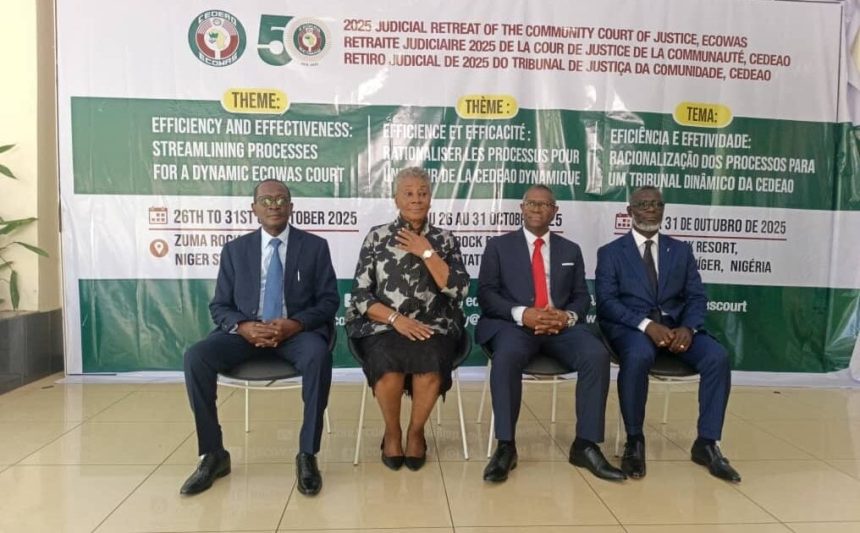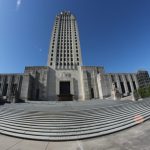The President of the ECOWAS Court of Justice, Justice Ricardo Gonçalves, has said the regional court is implementing reforms to streamline its judicial processes and ensure faster, more efficient delivery of justice across West Africa.
Gonçalves stated this on Monday in Niger State during the opening ceremony of the 2025 Judicial Retreat of the Community Court, with the theme: “Efficiency and Effectiveness: Streamlining Processes for a Dynamic ECOWAS Court.”
He said the retreat was designed to review the functioning of the court’s departments, assess collaboration with the College of Judges, and evaluate the implementation of previous resolutions with a view to improving overall institutional performance.
“We are taking deliberate steps to reform and streamline our judicial procedures so that justice within the ECOWAS Community is delivered more swiftly, efficiently, and in accordance with the law. Our procedures must remain faithful to the law while being responsive to the realities of justice delivery in our time,” Gonçalves said.
He noted that this year’s deliberations would focus on comparative judicial practices relating to summary hearings, interim measures, and other procedural matters essential to ensuring swift and fair adjudication.
The ECOWAS Court President stressed that litigants across the subregion expect efficiency and timeliness in the Court’s rulings, adding that the judiciary must evolve to meet the growing demands of regional integration and citizens’ rights.
He disclosed that the retreat would also review the Court’s annual performance report — a key accountability mechanism — to measure progress, identify shortcomings, and outline actionable steps for the new judicial year.
Gonçalves reiterated that the Court’s credibility rests on discipline, collaboration, and respect for institutional roles among judges and staff, emphasising that effective cooperation was vital to achieving the Court’s mandate.
“From this retreat, we must emerge with clear resolutions to guide our work in the coming year — strengthening collaboration, institutionalising accountability, and improving our judicial procedures to make them more transparent and accessible to litigants,” he said.
The PUNCH reports that the Court has faced challenges such as case backlogs, inadequate funding, and low compliance by some member states, which have occasionally hindered enforcement of its rulings.
Speaking at the event, the Chief Registrar of the ECOWAS Court, Dr. Yaouza Ouro-Sama, disclosed that human rights matters now constitute more than 90 per cent of cases filed before the regional court.
He noted that the Court has earned international recognition for its principled stance on human rights protection, making it one of the most active regional courts in Africa.
“The Court’s human rights mandate has become the hallmark of its judicial activities, with such cases constituting over 90 per cent of all filings. This elevated profile — both within the subregion and globally — has drawn increasing interest from legal practitioners, scholars, and stakeholders,” Ouro-Sama said.
He attributed the Court’s growing reputation to the dedication and intellectual rigour of its judges, whose rulings continue to attract international acclaim, and urged sustained efforts to build on this momentum.
Ouro-Sama added that the annual retreat serves as a forum for judges and staff to evaluate performance and develop new strategies for greater efficiency and responsiveness in justice administration.









